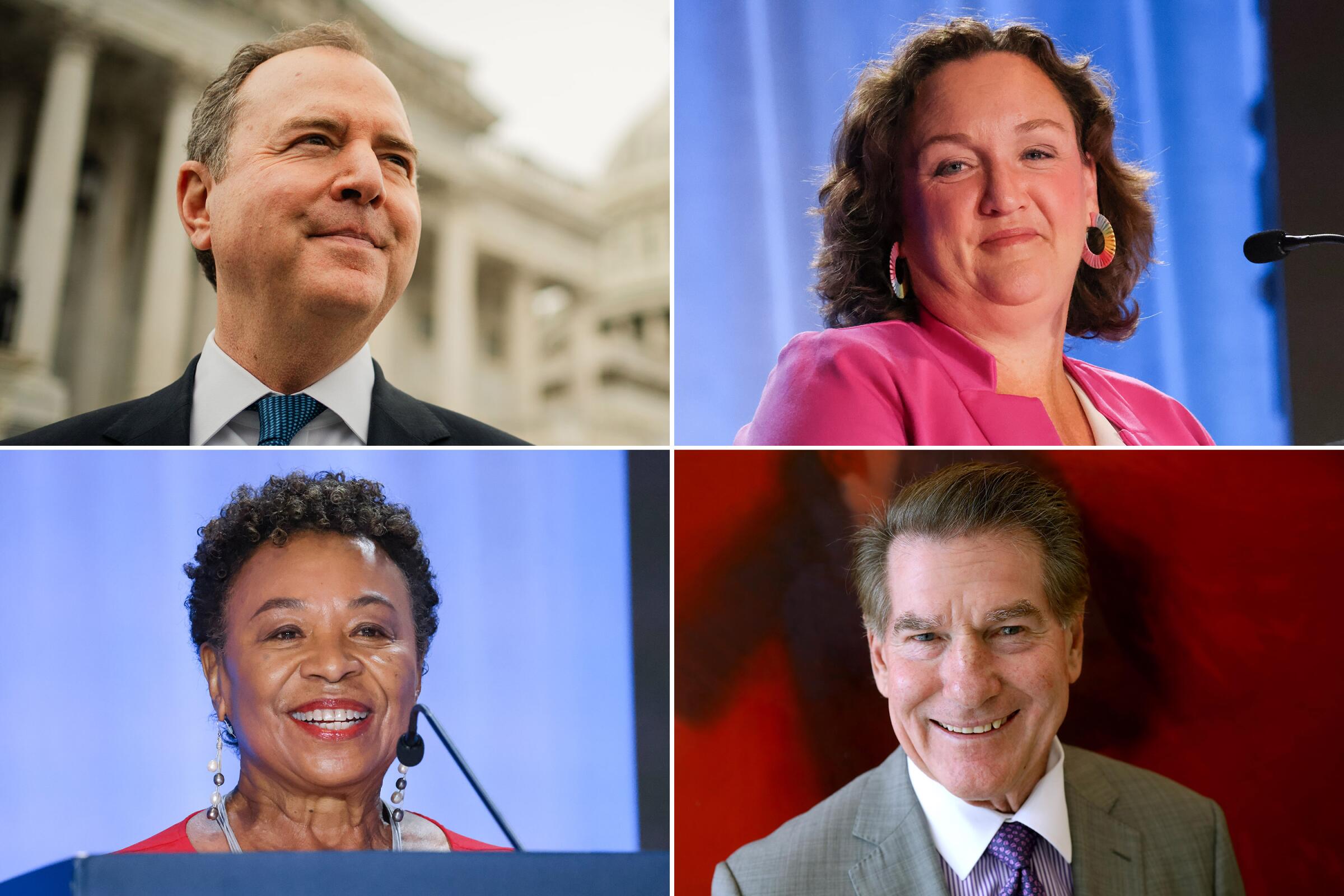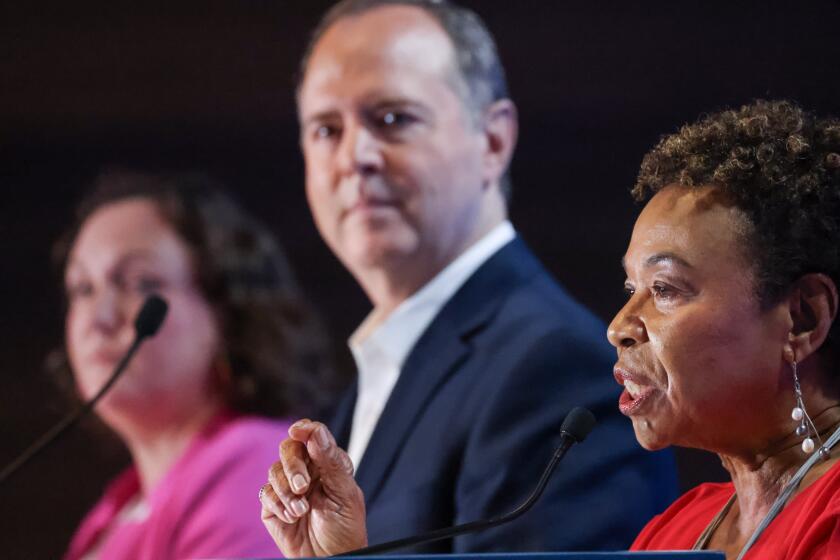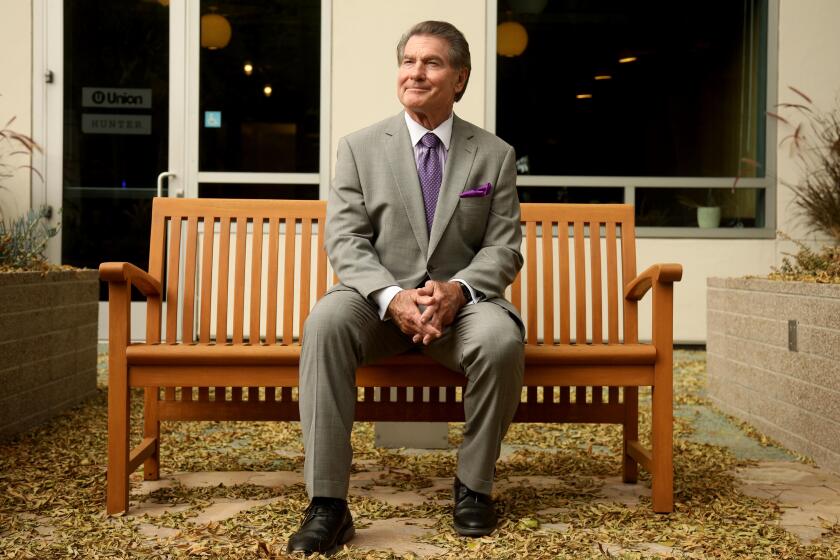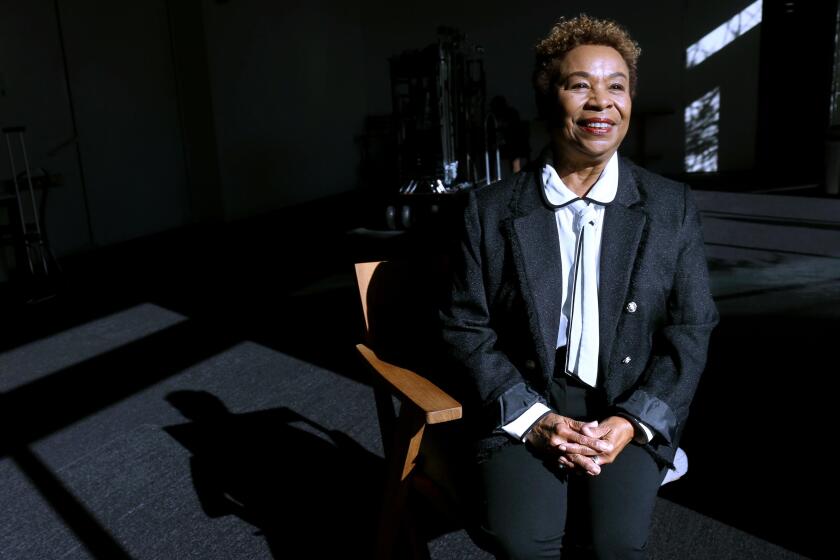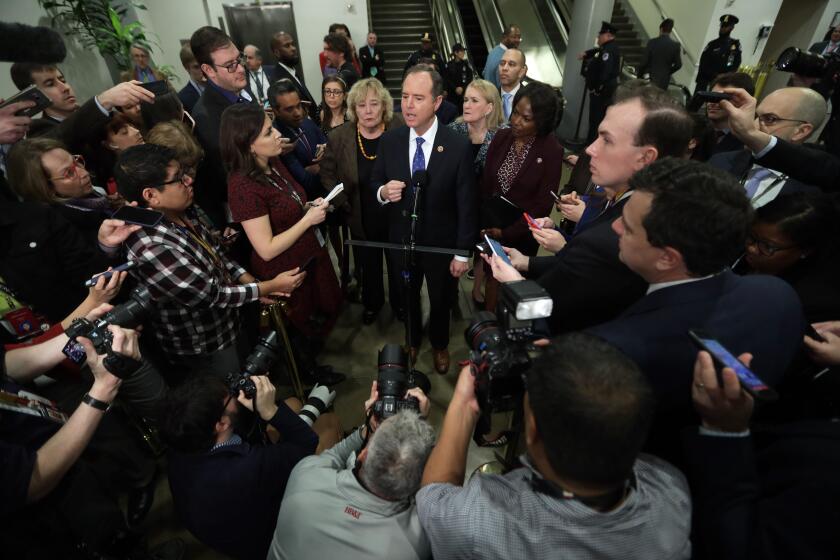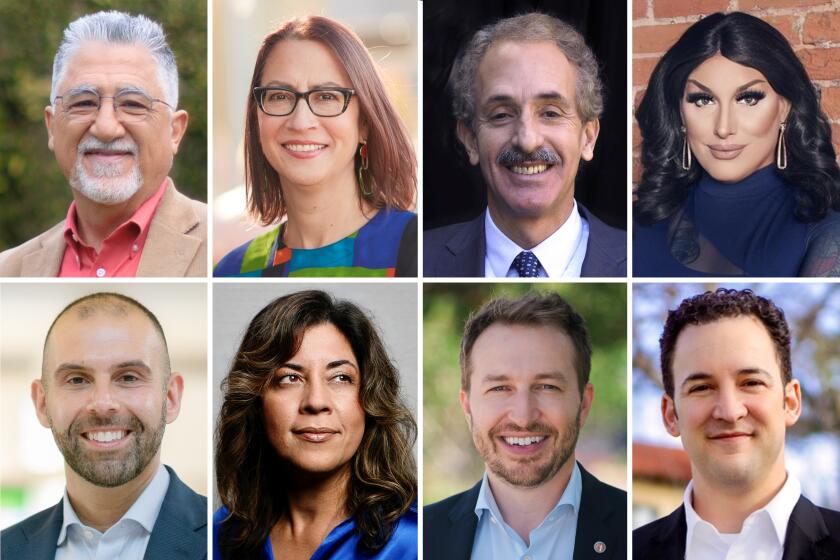No issue is dividing Democrats more than Israel’s war in the Gaza Strip in response to the Oct. 7 attack by Hamas.
Lee, who was the lone vote against authorizing the use of force by the United States after the Sept. 11, 2001, terrorist attacks, was quick to say she wanted to see a cease-fire in the region. She opposes more “unconditional” weapons sales to Israel and believes the U.S. must push for more diplomatic solutions to the crisis.
“A conditional ceasefire is not a ceasefire at all,” she said in a written statement. “A true ceasefire is not only possible, it is the most effective and humane path forward.”
Schiff has been the most pro-Israel candidate of the leading Democrats in the race. He supports continued U.S. aid to the Israeli military, including “funding and equipment to resupply missile defense capabilities.” The day after the Oct. 7 attack, Schiff offered his “unequivocal support for the security and the right of Israel to defend itself.”
He now says he supports “humanitarian pauses in the fighting to allow aid into Gaza and to get hostages out, but cannot support a permanent ceasefire that would perpetuate Hamas terrorist control of Gaza while they are threatening to attack Israel again.”
Porter said in a written statement in December she wanted to see Israel “working toward a lasting bilateral ceasefire in Gaza.” She says she doesn’t support unconditional aid to the country, adding that “there must be robust discussion about what military aid we’re providing Israel, how it’ll be used, and what the end game is that’ll bring about enduring peace and a two-state solution.”
Garvey says that the United States should continue to provide military aid to Israel and shouldn’t pressure Israel into an immediate cease-fire.
“Know one thing, that as one of our greatest allies, we will stand by you at all costs and at all times,” Garvey told Fox, referring to Israel, days after the Hamas attack.
